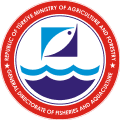Each of the three thematic sessions featured keynote addresses given by prominent scientists, decision-makers and academics in order to spotlight cross-cutting topics in the fisheries sector. Expert roundtables held under the umbrella of the thematic sessions complemented these addresses and enable dynamic discussions on key issues.
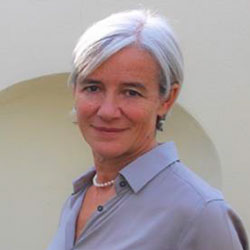
Food and Agriculture Organization of the United Nations
Vera Agostini is the Deputy Director of the Fisheries and Aquaculture Division at the Food and Agriculture Organization of the United Nations where she provides oversight, strategic leadership and technical support. Dr Agostini is a fisheries scientist by training and has held positions in the non-governmental, governmental and academic sectors, providing technical and strategic leadership across a range of multidisciplinary efforts and working with coastal communities and artisanal fishers around the globe. From 2007–2017, prior to joining the Food and Agriculture Organization of the United Nations she worked with The Nature Conservancy, initially as Senior Scientist with the Global Oceans Team and then as Director of Conservation and Director of Climate Adaptation.
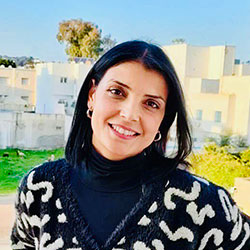
National Institute of Marine Sciences and Technologies, Tunisia
Olfa Ben Abdallah is a researcher at the Tunisian National Institute of Marine Sciences and Technologies. She holds a PhD in fisheries sciences and focuses her research of numerous aspects of marine fisheries, including marine biology, population dynamics, stock assessment and fisheries management. Dr Ben Abdallah has extensive expertise working with non-indigenous species and is the Tunisian National Focal Point of the GFCM research programme on blue crabs. She has participated in several national, regional and international projects, and collaborates with international organizations such as the FAO, GFCM and UNEP/MAP-SPA/RAC.
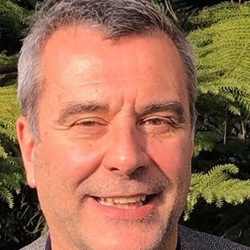
Institute for Biological Resources and Marine Biotechnologies of the National Research Council, Italy
Enrico Arneri is a specialist in biology, ecology and sustainable exploitation strategies of fishery resources with more than 40 years of experience in the field. At present, he is Coordinator of the Italian National Programme for Fishery Data Collection, a researcher with the Italian National Research Council (CNR) and a member of national and international fisheries management committees. He also holds a position as a Principal Investigator with the CNR Institute for Marine Biological Resources and Biotechnology, and formerly with the CNR Institute of Marine Sciences. Prior to this, Mr Arneri was associated with the Delegation of the European Community in the Pacific (Fiji and Solomon Islands) and the Laboratorio Biologia Marina e Pesca di Fano of the University of Bologna. He also served as Head of the CNR Institute of Marine Sciences until 2009 and as Senior Fisheries Officer with FAO until 2021. He has worked as the international project coordinator for several projects including EU-FP6 “SARDONE: Improving assessment and management of small pelagic species in the Mediterranean”, and the FAO projects AdriaMed and MedSudMed.

General Fisheries Commission for the Mediterranean of the Food and Agriculture Organization of the United Nations
Miguel Bernal is the Executive Secretary of the General Fisheries Commission for the Mediterranean (GFCM) of the Food and Agriculture Organization of the United Nations (FAO). He is the responsible for implementing policies agreed upon by GFCM countries towards ensuring the sustainability of fisheries and the sustainable development of aquaculture in the Mediterranean and the Black Sea. He has previously led the technical work of the GFCM Secretariat on fisheries-related issues, promoting modernization of work in support of decision-making, including through the publication of the biennial report on The State of Mediterranean and Black Sea fisheries. Prior to joining the GFCM, he worked in a number of top-level universities and fisheries research institutes across the world, publishing numerous scientific contributions in the fields of fisheries, ecosystem modelling and climate change.
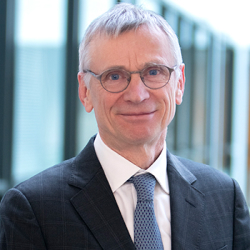
Secretariat of the Convention on Biological Diversity
David Cooper is Acting Executive Secretary of the Secretariat of the Convention on Biological Diversity (CBD). Prior to his appointment, he had been the Deputy Executive Secretary at the CBD Secretariat since October 2015. He also acted as Director of the division for science, assessment and monitoring at the Secretariat and coordinated the implementation of the Convention’s strategic plans. Dr Cooper has more than 30 years of experience in environmental and agricultural science and policy, and international negotiations, including more than 20 years with the CBD. As Secretary of the fifteenth meeting of the CBD Conference of the Parties, held in Kunming, China and in Montreal, Canada, David was instrumental in facilitating the complex pathway that led to the successful finalization and adoption of the Kunming-Montreal Global Biodiversity Framework and other key decisions. Before joining the CBD Secretariat, he worked at FAO, Genetic Resources Action International, the United Nations Association and the Agricultural Research Council of the United Kingdom of Great Britain and Northern Ireland. Dr Cooper was a lead author for the third, fourth and fifth editions of the Global Biodiversity Outlook and has contributed to various assessments of the Intergovernmental Science-Policy Platform on Biodiversity and Ecosystem Services and was a lead author for the Biodiversity Synthesis of the Millennium Ecosystem Assessment.
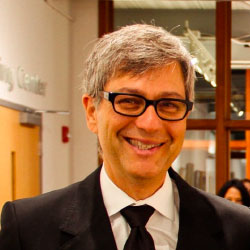
Rutgers University, United States of America
Enrique Curchitser is Professor of Climate and Oceanography at Rutgers University. His research centres around understanding coastal physical–biological systems and how they are forced by, and contribute to, the climate system. He has worked in the North Pacific, Atlantic, Indonesian Throughflow, the Bering Sea and Arctic regions. At Rutgers University, he leads the Earth System Modeling Laboratory, which focuses on the development and use of high-resolution coupled bio-physical models. Professor Curchitser is the Editor-in-Chief for Progress in Oceanography and the Chair of the Intergovernmental North Pacific Marine Science Organization.
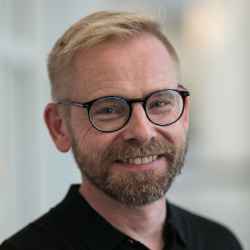
Dickey-Collas Marine
Mark Dickey-Collas is an experienced marine scientist, with expertise in the provision of scientific advice to governments for marine conservation, fisheries, biodiversity and ecosystem-based management and is currently working as an independent researcher. His scientific experience spreads across population dynamics, ecosystem modelling, conservation, stakeholder engagement and the science–policy interface. Mr Dickey-Collas has over 30 years of experience as an applied marine scientist, with a decade spent in Northern Ireland, the Kingdom of the Netherlands and at the International Council for the Exploration of the Sea (ICES) in Denmark. Initially, he specialized in pelagic fish and fisheries before moving into the realm of ecosystem-based management and becoming Chair of the ICES Advisory Committee. He oversaw the production and delivery of over 250 pieces of annual advice to governments across the North Atlantic. He left ICES in December 2023 and is now a member of the International Union for Conservation of Nature Fisheries Expert Group, Council Member of the Marine Biological Association of the United Kingdom of Great Britain and Northern Ireland and a member of the Defra biodiversity expert committee.
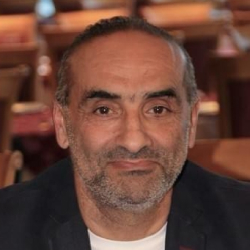
National Council for Scientific Research, Lebanon
Milad Fakhri is an agricultural engineer currently serving as the Director of the National Centre for Marine Sciences of the Lebanese National Council for Scientific Research (CNRS-L), Research Director at CNRS-L and the Operational Manager of the CNRS-L CANA research vessel. He holds a PhD in environmental biosciences, chemistry and health from the University of the Mediterranean Aix Marseille II, France and his expertise includes marine hydrology, biogeochemical aspects of the marine environment, marine pollution and fisheries. Dr Fakhri is also the National Focal Point of the Agreement on the Conservation of Cetaceans of the Black Sea, Mediterranean Sea and Contiguous Atlantic Area and the President of the Lebanese Committee of the Man and the Biosphere.
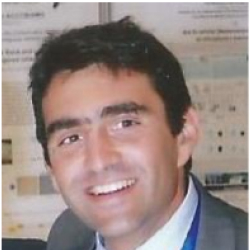
National Institute for Fisheries Research, Morocco
Abdelmalek Faraj is an Agricultural Engineer from the SupAgro Institute in Montpellier, France and holds a doctorate from the Mines School in Paris. He has headed the National Fisheries Research Institute in Morocco since 2013. He is also responsible for supporting and coordinating the Blue Belt initiative launched by Morocco as part of the twenty-second session of the Conference of the Parties to the United Nations Framework Convention on Climate Change (Morocco, 2016), dedicated to the resilience of the oceans in the face of climate change.
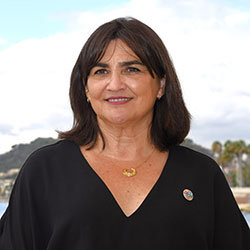
Spanish Institute of Oceanography of the Spanish National Research Council, Spain
Maria del Carmen García is the Director of the Spanish Institute of Oceanography. She has also worked as a researcher at the Oceanographic Centre of Málaga, where she served as Director for two years. She is a member of the Mediterranean Climate Change Group, working on time series of physical-chemical-biological variables and the relationship between environmental variables and living resources. She also represents the Spanish Institute of Oceanography in various international organizations such as the European Marine Board.
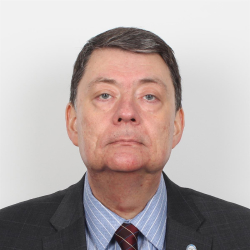
United Nations Division for Oceans and the Law of the Sea
Dmitry Gonchar is the Principal Legal Officer at the Division for Oceans and the Law of the Sea in the Office of Legal Affairs for the United Nations Secretariat. He has served in various positions at the Legal Department of the Russian Federation Foreign Ministry and Russian Federation Permanent Missions to the international organizations in Vienna and Geneva, covering the law of the sea, fisheries, polar region issues, environmental law and outer space law. He participated in numerous international meetings and conferences, including the United Nations General Assembly oceans processes and regional fisheries management organizations and arrangements, contributing to the drafting of several international agreements. He has also participated in the servicing of the intergovernmental conference that adopted the Agreement under the United Nations Convention on the Law of the Sea on the conservation and sustainable use of marine biological diversity of areas beyond national jurisdiction.
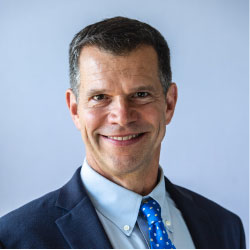
International Council for the Exploration of the Sea, Denmark
Alan Haynie has served as General Secretary of the International Council for the Exploration of the Sea since 2022. He has broad, interdisciplinary experience with marine science and economics, fishery management and advice, stakeholder engagement, climate change research, policy analysis and organizational excellence. Prior to joining the International Council for the Exploration of the Sea, he spent 18 years with the National Oceanic and Atmospheric Administration Fisheries, working in the North Pacific as well as in diverse roles within the United States of America and internationally.
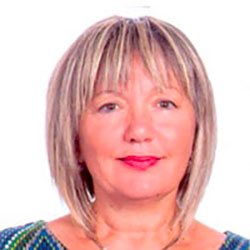
United Nations Environment Programme Mediterranean Action Plan Barcelona Convention Secretariat
Tatjana Hema is the coordinator of the United Nations Environment Programme Mediterranean Action Plan Barcelona Convention Secretariat, based in Athens, Greece. Prior to this role, she served as Deputy Coordinator for five years. She has extensive experience in intergovernmental processes, particularly in the areas of marine and coastal environment and related sustainable development issues and holds a PhD from the University of Tirana and a Masters’ degree on Environmental Management and Technologies from the Federal Polytechnic University of Lausanne. She joined the United Nations in 2003, after 12 years as a professor at Tirana University and five years as a Senior Manager in the National Environment Agency of Albania and Deputy Minister of Environment. In 2016 she was awarded the United Nations Environment Baobab Environmental Service Award, which exemplifies those who demonstrate outstanding effort and dedication in their field of expertise, to enhance environmental sustainability and conservation at local, national, regional or international levels.
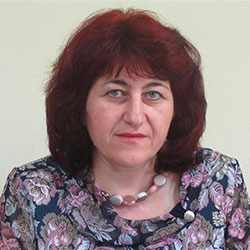
Bulgarian Academy of Sciences, Bulgaria
Petya Pavlova Ivanova is a Professor with the Institute of Oceanology of the Bulgarian Academy of Sciences. She has over 30 years of experience in marine biology, fisheries science and environmental science. In particular, her research focuses on the application of molecular genetic methods towards studying the population-genetic structure and specifying the taxonomic affiliation of marine hydrobionts in connection with their biodiversity and the rational exploitation of their stocks; metabarcoding as an innovative tool for the development and comprehensive monitoring of ecosystems and fish stock assessment; and the assessment of macro and microplastic pollution in the Black Sea ecosystem and the Danube River.
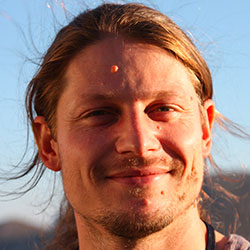
National Institute of Oceanography and Applied Geophysics - OGS, Italy
Simone Libralato is a Senior Scientist at the Italian National Institute of Oceanography and Applied Geophysics. He has a background in ecological modelling and quantitative analyses with special emphasis on bioenergetics of fish and shellfish, ecosystem modelling and ecological indicators. He has also gained experience in marine food web modelling and the application of integrated approaches to marine ecology (end-to-end models). His research is focused on the combined effects of different pressures on marine ecosystems, in particular fishing, aquaculture, climate and nutrient input. These studies are carried out with deterministic, statistical models and indicators that integrate resource dynamics and oceanographic variables at different scales and in different marine systems in the Mediterranean Sea and around the world.
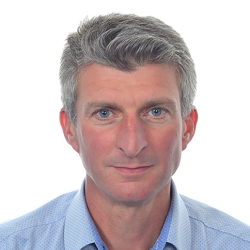
World Maritime University, Sweden
Francis Neat is Head of Ocean Sustainability, Governance and Management at the World Maritime University. His research focuses his on illegal, unreported and unregulated fishing, biodiversity, and equality and inclusivity in ocean science. Dr Neat holds a PhD from Glasgow University and has over 25 years of research experience in freshwater and marine ecosystems and fisheries management, in particular the deep ocean and high seas. Prior to joining the World Maritime University, he was Principal Scientist at the Scottish Government’s Marine Laboratory, and more recently was Head of Strategic Research at the Marine Stewardship Council.
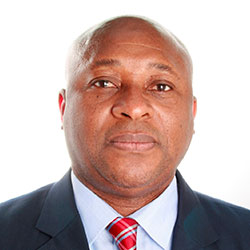
International Commission for the Conservation of Atlantic Tunas
Camille Jean Pierre Manel is the Executive Secretary of the International Commission for the Conservation of Atlantic Tunas since 2018. He holds a master’s degree in fisheries and aquaculture and a master’s degree in economics of marine resources and coastal environment. Throughout his career, Mr Manel has held various positions within the sector including at the Ministry of Fisheries and Maritime Economy in Senegal as Coordinator of the Studies and Planning Unit, Deputy of Maritime Fisheries, Director of Maritime Fisheries and Director of the Management and Exploitation of the Seabed. He also worked as a political advisor with Greenpeace Africa with a focus on the management of small pelagic fisheries in West Africa. Furthermore, he rejoined the Ministry of Fisheries and Maritime Economy as Technical Advisor to the Ministry before taking up his current duties at the International Commission for the Conservation of Atlantic Tunas. With thirty-three years of experience in the fisheries and aquaculture sector, Mr Manel has in-depth knowledge in the field of sustainable fisheries management and in bilateral and multilateral negotiations.
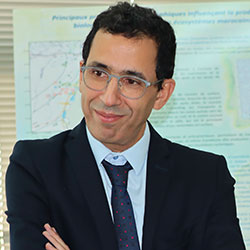
National Institute of Fisheries Research, Morocco
Mohammed Malouli Idrissi is an engineer holding a PhD in the management of fisheries and environmental economy. Currently, he is Head of the Tangier Centre of the National Institute of Fisheries Research and oversees the Mediterranean region. He is also Chair of the Scientific Advisory Committee of the General Fisheries Commission for the Mediterranean. Between 2014 and 2018, he was Head of the Fisheries Department in the National Institute of Fisheries Research. Prior to this, he worked as an FAO expert on small-scale fisheries for southern Mediterranean countries, namely Morocco and Tunisia, from 2008 to 2011. His expertise also includes marine protected areas; notably he prepared his PhD on marine protected areas in the Moroccan Mediterranean between 2010 and 2016.
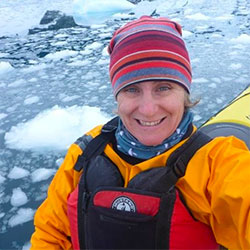
General Fisheries Commission for the Mediterranean of the Food and Agriculture Organization of the United Nations
Elisabetta Betulla Morello is a quantitative fisheries ecologist by training and Fisheries Resources Officer in charge of the GFCM Fisheries Team ad interim. She holds a PhD in marine biology from the University of London. In 2010, after ten years spent at the Italian National Research Council working on the impacts of fisheries and stock assessment, she moved to Australia where she worked for the Commonwealth Scientific and Industrial Research Organisation on models of intermediate complexity for ecosystem assessments, as well as on the impacts of human activities on tropical and subtropical ecosystems. In 2015, she obtained a senior Marie Curie Fellowship looking at the application of models of different complexities to the same demersal fishery and management question. She joined the GFCM in 2017.
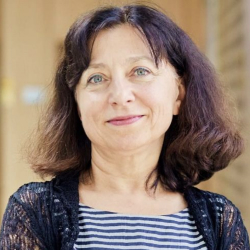
Directorate-General for Maritime Affairs and Fisheries, European Commission
Charlina Vitcheva was appointed Director General of the Directorate-General of Maritime Affairs and Fisheries in June 2020. Prior to this, she served as Deputy Director General of the Joint Research Centre from September 2016 to April 2020, acted as Director of Smart and Sustainable Growth in southern Europe at the Directorate-General of Regional and Urban Policy, and held a director’s position on Inclusive Growth, Territorial and Urban Development in northern Europe. Before joining the European Commission, she had been active in the Bulgarian public administration for 15 years, including at the Permanent Representation in Brussels, was involved in the negotiations of Bulgaria’s accession to the European Union and was notably in charge of agricultural and fisheries dossiers, heading negotiations from 2000 to 2004 in the areas of agriculture and rural development, food safety and fisheries.


